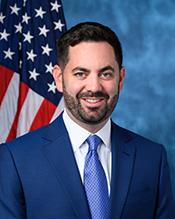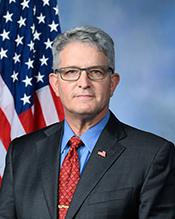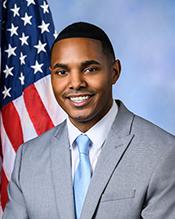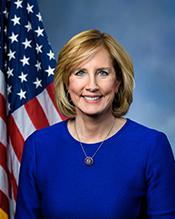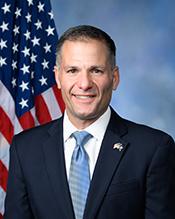0
0
0
Enhanced Presidential Security Act of 2024
10/3/2024, 11:29 AM
Summary of Bill HR 9106
Bill 118 hr 9106, also known as the Enhanced Presidential Security Act of 2024, is a piece of legislation introduced in the US Congress aimed at improving the security measures surrounding the President of the United States. The bill proposes several key provisions to enhance the protection of the President and ensure the safety of the highest office in the country.
One of the main components of the bill is the allocation of additional funding for the Secret Service, the agency responsible for protecting the President and other high-ranking officials. This funding would be used to increase the number of agents, improve training programs, and enhance the agency's technological capabilities to better detect and prevent potential threats.
Furthermore, the bill calls for the implementation of stricter security protocols at public events attended by the President, such as rallies, speeches, and official appearances. This includes increased coordination with local law enforcement agencies, enhanced screening procedures for attendees, and the deployment of additional security personnel to ensure the safety of all individuals present. Additionally, the Enhanced Presidential Security Act of 2024 mandates a comprehensive review of current security measures and protocols in place for the President, with the goal of identifying any weaknesses or vulnerabilities that need to be addressed. This review would be conducted by a panel of security experts and government officials, who would then make recommendations for improvements to enhance the overall security of the President. Overall, Bill 118 hr 9106 seeks to bolster the security measures surrounding the President of the United States and ensure that the individual holding this office is adequately protected at all times. By allocating additional resources, implementing stricter protocols, and conducting a thorough review of current security measures, this legislation aims to enhance the safety and security of the President and uphold the integrity of the highest office in the country.
One of the main components of the bill is the allocation of additional funding for the Secret Service, the agency responsible for protecting the President and other high-ranking officials. This funding would be used to increase the number of agents, improve training programs, and enhance the agency's technological capabilities to better detect and prevent potential threats.
Furthermore, the bill calls for the implementation of stricter security protocols at public events attended by the President, such as rallies, speeches, and official appearances. This includes increased coordination with local law enforcement agencies, enhanced screening procedures for attendees, and the deployment of additional security personnel to ensure the safety of all individuals present. Additionally, the Enhanced Presidential Security Act of 2024 mandates a comprehensive review of current security measures and protocols in place for the President, with the goal of identifying any weaknesses or vulnerabilities that need to be addressed. This review would be conducted by a panel of security experts and government officials, who would then make recommendations for improvements to enhance the overall security of the President. Overall, Bill 118 hr 9106 seeks to bolster the security measures surrounding the President of the United States and ensure that the individual holding this office is adequately protected at all times. By allocating additional resources, implementing stricter protocols, and conducting a thorough review of current security measures, this legislation aims to enhance the safety and security of the President and uphold the integrity of the highest office in the country.
Congressional Summary of HR 9106
Enhanced Presidential Security Act of 2024
This bill requires the U.S. Secret Service to apply the same standards for determining the number of agents required to protect Presidents, Vice Presidents, and major Presidential and Vice Presidential candidates. (The Department of Homeland Security identifies major Presidential and Vice Presidential candidates after consultation with an advisory committee composed of congressional leaders.)
Current Status of Bill HR 9106
Bill HR 9106 is currently in the status of To President since October 1, 2024. Bill HR 9106 was introduced during Congress 118 and was introduced to the House on July 23, 2024. Bill HR 9106's most recent activity was Became Public Law No: 118-91. as of October 1, 2024
Bipartisan Support of Bill HR 9106
Total Number of Sponsors
1Democrat Sponsors
0Republican Sponsors
1Unaffiliated Sponsors
0Total Number of Cosponsors
12Democrat Cosponsors
4Republican Cosponsors
8Unaffiliated Cosponsors
0Policy Area and Potential Impact of Bill HR 9106
Primary Policy Focus
Government Operations and PoliticsPotential Impact Areas
- Congressional oversight
- Department of Homeland Security
- Presidents and presidential powers, Vice Presidents
Alternate Title(s) of Bill HR 9106
Enhanced Presidential Security Act of 2024
Enhanced Presidential Security Act of 2024
Enhanced Presidential Security Act of 2024
Enhanced Presidential Security Act of 2024
To direct the Director of the United States Secret Service to apply the same standards for determining the number of agents required to protect Presidents, Vice Presidents, and major Presidential and Vice Presidential candidates, and for other purposes.
Comments
Sponsors and Cosponsors of HR 9106
Latest Bills
Public Lands Military Readiness Act of 2025
Bill HR 5131December 11, 2025
Dalles Watershed Development Act
Bill HR 655December 11, 2025
STARS Act
Bill HR 4285December 11, 2025
To authorize, ratify, and confirm the Agreement of Settlement and Compromise to Resolve the Akwesasne Mohawk Land Claim in the State of New York, and for other purposes.
Bill HR 2916December 11, 2025
To designate the facility of the United States Postal Service located at 86 Main Street in Haverstraw, New York, as the "Paul Piperato Post Office Building".
Bill HR 1009December 11, 2025
Make SWAPs Efficient Act of 2025
Bill HR 1676December 11, 2025
Miccosukee Reserved Area Amendments Act
Bill HR 504December 11, 2025
To designate the facility of the United States Postal Service located at 298 Route 292 in Holmes, New York, as the "Sheriff Adrian 'Butch' Anderson Post Office Building".
Bill HR 1008December 11, 2025
Lower Elwha Klallam Tribe Project Lands Restoration Act
Bill HR 2388December 11, 2025
Fallen Servicemembers Religious Heritage Restoration Act
Bill HR 2701December 11, 2025
